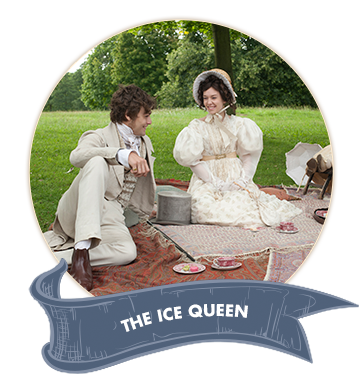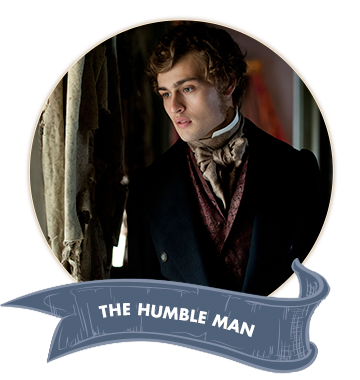

Pip begins his life-changing journey as an innocent child, loyal to his kind brother-in-law Joe. His strong sense of right and wrong is clear from the guilt he feels after helping a convict, but this experience corrupts his purity, and his transformation begins.


We are first introduced to the beautiful girl during the iconic card game. Although entrancing to Pip, Estella comes across as a nasty, capricious child. She revels in Pip’s misery, making cruel remarks and basking in her apparent superiority. At first glance, she is little more than a snob and a bully.


The day Pip meets the cold and proud Estella, he is immediately infatuated and grows embarrassed of his working class background. He is no longer happy living a simple life – Pip wants fortune, status, and most of all, Estella. The seeds of his moral decline are planted…


As she grows older, Estella becomes even more devastatingly beautiful and ruthless with the hearts of her admirers. Her powers of manipulation are clear from her callous treatment of every man she encounters, but a glimmer of loyalty to Pip makes her slightly more human. A charged exchange with Miss Havisham, which reveals the extent of the emotional abuse Estella has suffered, excuses her emotionless nature.


After receiving a large sum of money from a mysterious benefactor, whom Pip believes to be Miss Havisham preparing him to marry Estella, he reinvents himself as a ‘gentleman’. Now a refined man of means, he shuns his roots and feels ashamed of everything he once held dear, from the man who raised him to his own name.


Pip declares his undying love for Estella and she responds with a strange, detached form of sympathy. She has a heart of ice, but she’s not deliberately evil. Estella is a victim of her unusual and loveless upbringing, but hope appears in her self-awareness. She realises that her cold-heartedness is entirely out of her own hands, and entirely unintentional.


As Pip’s final transformation commences, he learns what it truly means to be a gentleman. After realising that his fortune was acquired by immoral means, he realises he deserted Joe for a life of superficial happiness. From here onwards, Pip’s morality is restored.


The story ends with a transformation so dramatic that it could only have been brought about by years of suffering. Estella is now a widow after enduring a long and abusive relationship, and the pain she endures as an adult undoes any arrogance she held as a beautiful young woman. Finally, after a heart-breaking, complicated journey, she may have learnt to love.
